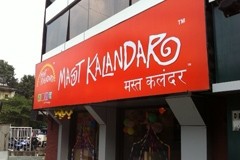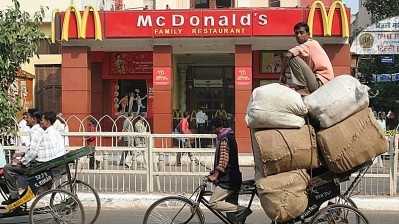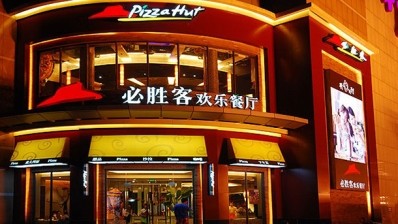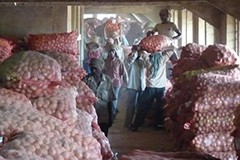State of the industry
Vital for Indian quick-service chains to develop own infrastructure

However, to sustain their growth and develop their profits, QSRs will have to build their own supply chains from the ground up—not an easy task in a country with a woefully underdeveloped and often corrupt infrastructure.
“QSRs in India will see double-digit growth in the medium- to long-term as food consumption habits there are changing fast,” said Asitava Sen, head of Rabobank India F&A Research & Advisory.
“A young population, higher rate of urbanisation, larger disposable incomes, higher protein consumption, increased participation of women in the workforce and exposure to western lifestyles are leading to the experimentation with, and adoption of, new dietary habits and more occasions to eat out for all levels of society”.
Perfect timing
As a result, Sen believes the time is right for global and Indian QSR chains and their supply chain partners to expand in India. This growth will support the development of a new generation of Indian food processors and supply chain partners, with significant potential for “commissaries” to establish themselves as a link between QSRs and food producers and processors.
The Indian foodservice industry was worth a total of Rs460bn (US$8.6bn) in 2011 and is expected to see compound growth of 10% until at least 2015.
Out of this, the QSR segment is worth Rs33bn (US$600m) and is expected to grow at a rate of 30% over the same period. According to the National Restaurant Association of India, 50% of consumers currently eat out at least once every three months, and this shift is epitomised by the growing presence of QSR concepts, including many global QSR players.
Battling fragmentation
Rabobank says an efficient supply chain will help provide standard product quality to customers across stores, but supply fragmentation in India is significant, creating quality issues at the back-end. Limited modern storage and transportation infrastructure adds to the problem, which is even more pronounced in perishable products. As such, capital investment in upstream and midstream processing parts of the supply chain are critical, especially since food production, processing and preparation on a large scale are just beginning in India.
Relationships between QSRs and their channel partners have worked well in categories such as cheese, poultry and frozen foods in India and there is room for such partnerships to flourish in other key categories of commodities and processed foods.
QSR players prefer to have multiple supplier options to diversify the risk and help in price negotiations. In segments such as poultry, cheese and French fries there are only a few processors currently, but QSRs may look at either developing small players as vendor partners or even consider backward integration into the business.












